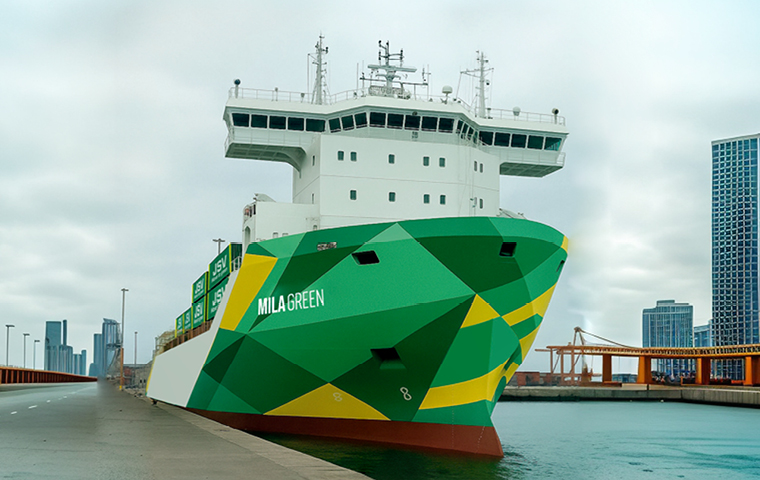Multimodal Transport in Logistics Sustainability

Intermodal transport is defined as the movement of goods using different modes of transport without handling the cargo during transfers.
This strategy is essential in modern logistics, as it optimizes processes, reduces costs, and enhances logistics sustainability.
By integrating more efficient and less polluting modes, such as rail and maritime transport, it helps reduce the carbon footprint and build a more responsible supply chain.
Concept and operation of intermodal transport
Intermodal transport combines trains, trucks, ships, and even airplanes to move goods efficiently and safely.
Thanks to the use of standardized containers, cargo does not need to be handled during transfers, reducing time, costs, and risks.
- Optimizes each segment of the route using the most efficient mode.
- Ensures speed and reliability in delivery.
- Adapts to customer needs and market demand.
At JSV Logistic, we have extensive experience in multimodal transport, integrating land, rail, and maritime solutions to enhance the efficiency of every shipment.
Advantages of intermodal transport for modern logistics
The main advantages of intermodal transport revolve around efficiency, sustainability, and safety.
Its adoption by companies helps improve competitiveness and operational profitability.
| Advantage | Description |
|---|---|
| Cost reduction | Using rail for long-distance routes is more economical than road transport. |
| Sustainability | Up to 80% less CO2 emissions compared to road transport. |
| Safety | Goods travel in closed and standardized containers. |
Adopting intermodality means committing to a more efficient, safer, and environmentally friendly logistics future.
Environmental sustainability in intermodal transport
Sustainable logistics has become a strategic pillar for the future. Intermodal transport helps reduce greenhouse gas emissions and make better use of energy resources.
- Reduced fuel consumption.
- Use of renewable energy in rail transport.
- Route optimization through management systems (TMS).
- Adoption of electric vehicles for last-mile delivery.
At JSV Logistic, we integrate maritime and rail transport — two of the most efficient and sustainable modes globally.
Applications across different sectors
Intermodality adapts to multiple industries. Sectors such as food, automotive, construction, and e-commerce leverage this model to gain competitiveness.
| Sector | Intermodal application |
|---|---|
| Food | Transport of perishables combining road and rail. |
| Automotive | Constant flow of components to assembly plants. |
| E-commerce | Optimization of national and international shipments. |
| Construction | Materials transported by ship and distributed by truck. |
Infrastructure and technology for an intermodal future
Intermodal terminals, IoT technology, and artificial intelligence are key elements for improving traceability and efficiency in the supply chain.
Thanks to real-time tracking, companies can anticipate disruptions and meet delivery deadlines more effectively.
At JSV Logistic, we are committed to innovation in intermodal logistics, promoting digitalization and the use of clean technologies in every stage of transport.
FAQs about intermodal transport and sustainability
What is intermodal transport?
It is the combination of different modes of transport (truck, train, ship) without handling the cargo, made possible through the use of standardized containers.
Why is intermodal transport sustainable?
Because it reduces CO2 emissions, optimizes energy consumption, and encourages the use of less polluting modes such as rail transport.
Which sectors benefit from intermodal transport?
Food, automotive, textile, e-commerce, construction, and technology are the main sectors that incorporate it into their logistics.
How does it improve the supply chain?
It provides flexibility, reduces costs, and ensures faster and safer deliveries, strengthening competitiveness in a globalized market.
Related news

JSV Group acquires its second next-generation, low-emission vessel
JSV Group acquires its second next-generation, low-emission vessel

Documentary requirements for maritime export and import: practical guide 2025
This container offers every advantage: high capacity and excellent maneuverability.